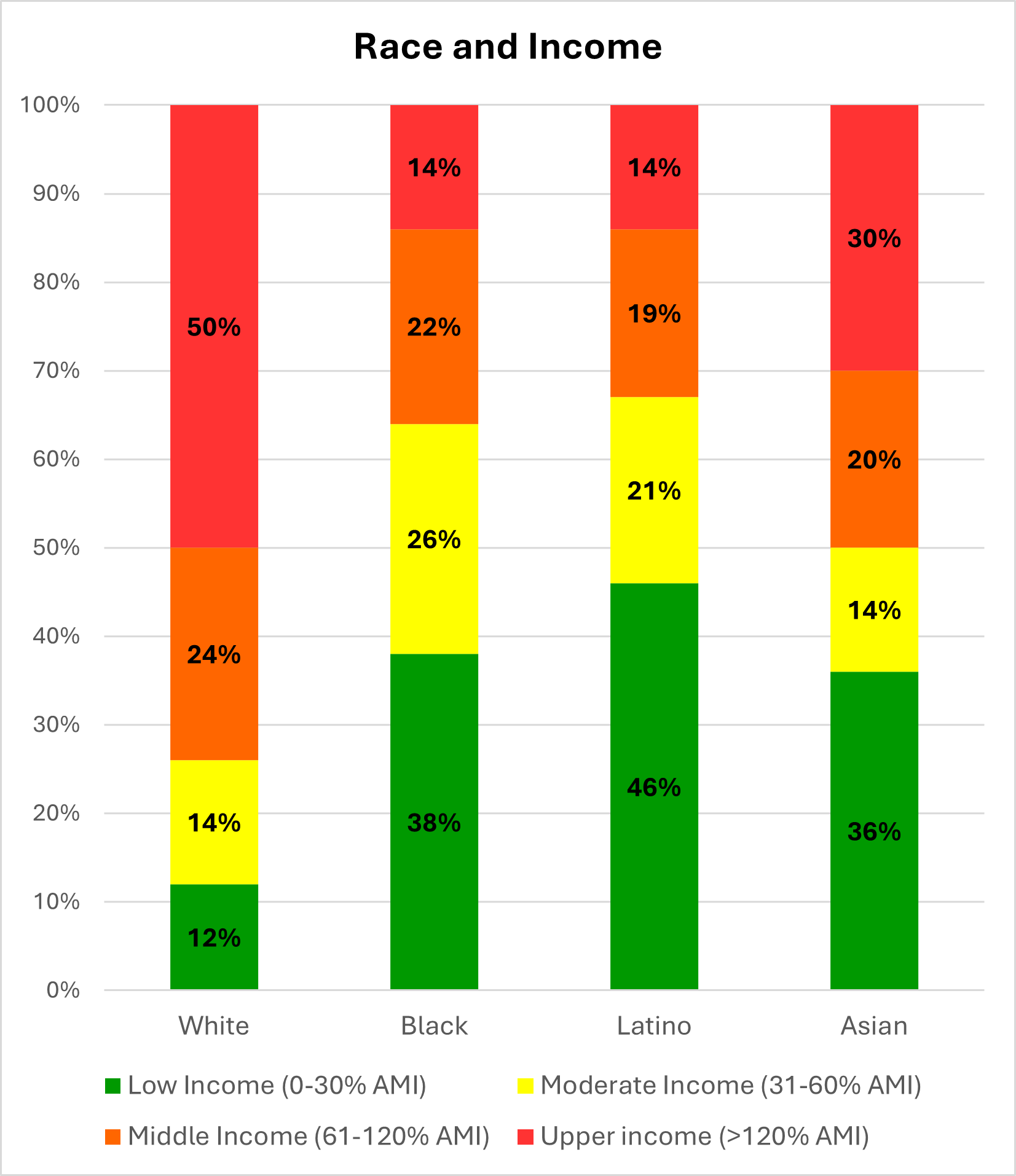We need racial justice, not exclusion and inequality.
It’s time for “affordable housing” that is in our communities’ reach.
Housing is a key racial justice issue. People of color in Boston make much less than white people because of the combined forces of economic inequality and systemic racism, which means that are huge racial disparities in what housing families can access. This is true even in supposedly “affordable” housing, and it’s happening on top of the ongoing impacts of the long history of explicitly and implicitly discriminatory housing practices in this country.
Many Black, Latino, and Asian/Pacific Islander households make $0-35,000 or $35,000-70,000 a year. In the language of “area median income” or “AMI” (you can read more about the definition of AMI and its problems here), more than half of households of color make 0-60% AMI in Boston, but many “affordable” housing programs fail to adequately address the housing needs of this income bracket.
According to the City’s own data, 38% of Black households make less than 30% AMI, and 65% make less than 60% AMI. 46% of Latino households make less than 30% AMI, and 67% make less than 60% AMI. 36% of Asian/Pacific Islander households make less than 30% AMI, and 50% make less than 60% AMI. In contrast, 14% of white households make less than 30% AMI, and 26% make less than 60% AMI.
People of color are disproportionately lower-income, and the level of disparity is huge. Without policies that truly address the housing needs of low-income residents, households of color will struggle significantly more than white households to find housing they can afford.
According to the City’s own data on race and rent burden, 58% of Black, Latino, and Asian/Pacific Islander renter households pay more than 30% of their income on housing, and 36% pay more than 50% of income on housing. In contrast, 40% of white renter households pay more than 30% of income on housing and 22% pay more than 50% of income on housing. The majority (60%) of white renter households have affordable housing that costs less than 30% of their income, compared to only 42% of renter households of color. Every household should be able to find housing they can afford, which is why Boston must ensure that housing is being built that’s accessible to low-income households and households of color.
The gap in both income levels and rent burden between white and Black households has only gotten worse in the past five years, meaning that the city’s current policies are making racial income and housing disparities in Boston even worse. This is not okay!
Communities of color are also more vulnerable to being displaced from their homes and being the victims of speculation. Dating back to redlining and blockbusting, communities of color have seen decades of disinvestment, which drastically reduced livability for households of color. Now that there’s more profit to be found in developing in these neighborhoods, developers want to cash in. Luxury developments with minimal affordability requirements fetch high rents or condo sale prices for their developer while driving up prices in the surrounding community. This leads to increased land prices, higher rents, and more displacement. Because of the huge change in rents, as people of color get displaced, they can't afford to live in the new developments going up, and remaining affordable housing is scarce.
In order to combat these racial justice issues, Boston needs strong housing policy that ensures truly affordable housing gets built in every neighborhood and works in tandem with anti-displacement protections. Let’s fight for the housing our communities deserve!
